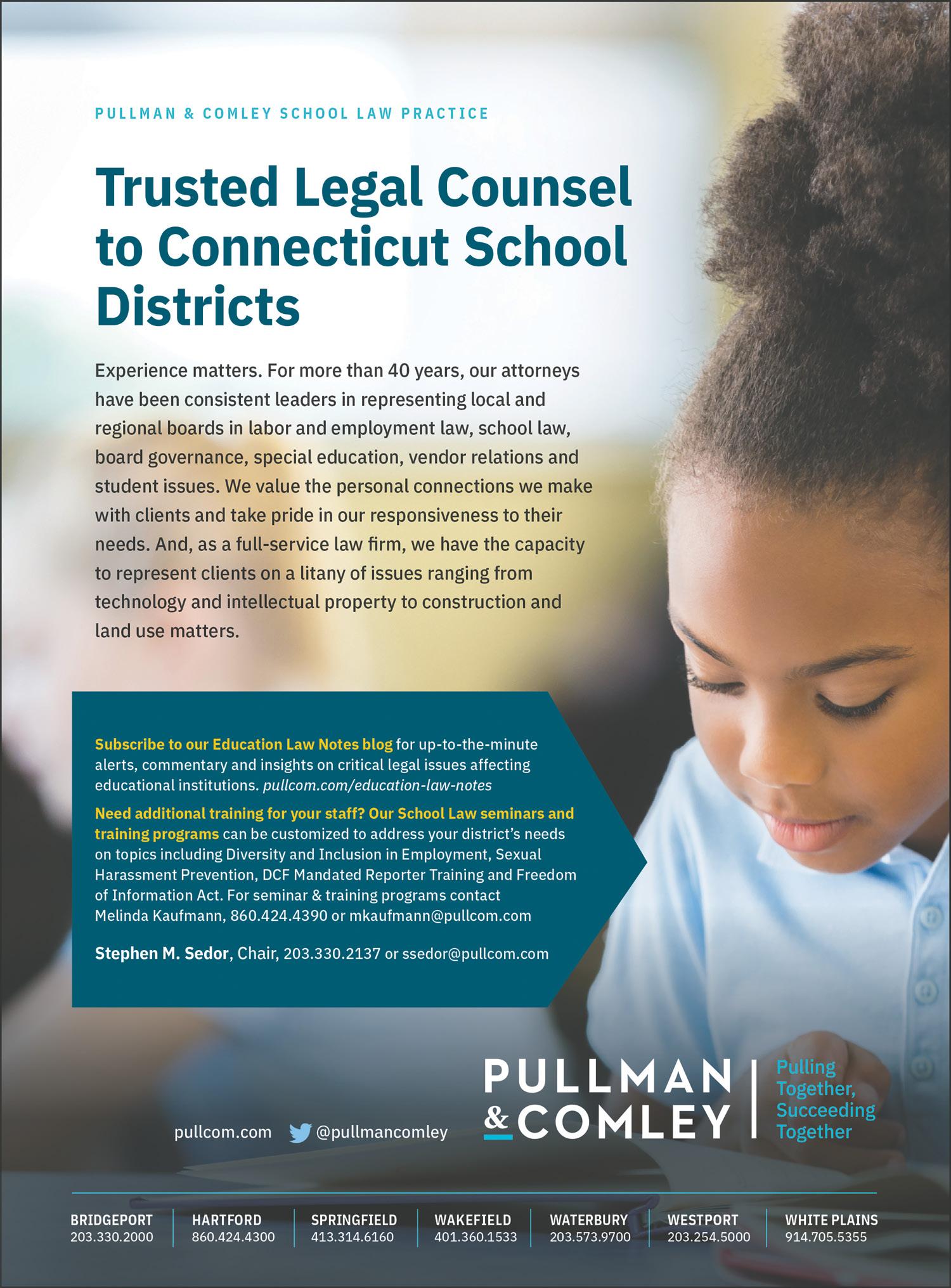of Public Education Award
Patrice McCarthy Executive Director & General Counsel,Bob Rader, former CABE Executive Director, will receive the 2022 Connecticut Association of Boards of Education Friend of Public Education Award, which will be presented at the Annual CABE/CAPSS Conference at the Mystic Marriott on November 18. Bob served as CABE’s Executive Director since 1996 until his retirement in early July.
Bob has presented numerous workshops on issues of importance to boards of education, nationally and statewide and has authored hundreds of articles that have been published in the CABE Journal, various National

Waterbury Educator Career Development Initiative
Director & General Counsel,
The Waterbury Board of Education has landed a new career development program for teachers and paraprofessionals, providing an innovative higher education opportunity. Up to 800 educators in the school district will be able to earn graduate credit for free through Waterbury U, an initiative to combat a teacher retention crisis.
something that contributes toward retention, growth and the professional learning of our staff, Ruffin said. “You have to measure that over time.” The program can help a paraprofessional become a teacher; a teacher with a bachelor’s degree earn a master’s; and an administrator who wants to add extra credentials in certain areas, such as classroom management or how to meet the social and emotional needs of students.
What do the worlds of mu sic, particularly conductors, and school district leaders have in common? It turns out there is more than you may think!
Join us Saturday morning for a lively session presented by Dr. Craig Hlavac. Dr. Hlavac is the Associate Dean of the Liberal Arts (Arts, Humanities, Social & Behavioral Sciences) at Southern Connecticut State University (SCSU).
School Boards Association (NSBA) publications and in the Connecticut Society of Association’s Source. He is the primary author of Leadership for State School Boards Associations, an NSBA publication, and he was the key author and developer of The School Board of the Future
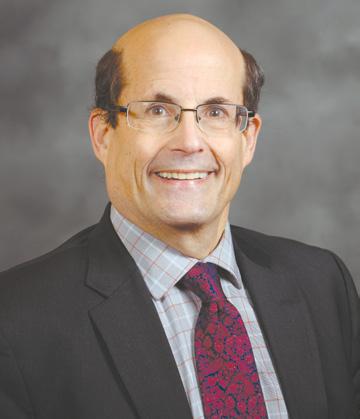
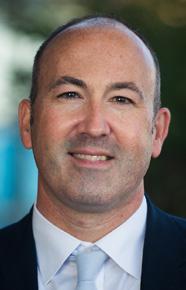

Waterbury U will be an optional professional development opportunity in which educators can gain microcredentials that could lead to a master’s degree and salary advancement, Superintendent Verna Ruffin said. It will complement district-required professional development. The district is using some of its federal American Rescue Plan Elementary and Secondary School Relief funds to provide the program in partnership with BloomBoard, an educator-advancement platform.
Ruffin described Waterbury U as “an investment in paraprofessionals and teachers. How we measure the outcome at the end of this year is going to tell us whether this is really
Board President Ann Sweeney said “Waterbury U is a serious investment in quality education in Waterbury Public Schools to retain current staff and attract new hires. Not only does it recognize and reward current staff for their commitment to Waterbury public schools and their own professional growth, it serves as an incentive to attract new hires who are equally committed to their
Previously, he served as Associ ate Professor and Chair of the Music Department at Southern. For the past 15 years, Dr. Hlavac has also been the director of the University Band at SCSU. He received a Bachelor of Arts in Music and Bachelor of Science in Music Education from the University of Connecticut, a Master of Music from Yale University, and an Ed.D. in Educational Leadership from the
What’s Going On?
Liz Brown President, CABE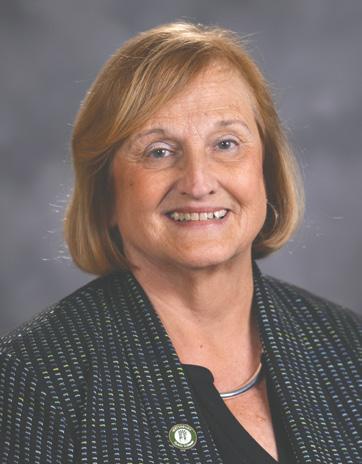
The Connecticut Labor Department reported in August 2022, that there were over 105,000 job openings across multiple private and public sectors in Connecticut.
School districts are living this phenomenon with a very real and relentless teacher shortage. I’ve served on the Board of Education in Waterbury for 11 years and historically teacher shortage areas were special education, the sciences and math. Today, teacher shortages seep into many more academic areas, as well as mental health and social work professionals.
What’s going on?
Quite simply, higher education reports fewer students enrolling in teacher preparation programs. The number of new teacher candidates has been gradually going down for quite a few years, but the COVID-19 pandemic really exacerbated the problem. It is not unusual to hear that a school somewhere in Connecticut had to close for a day (or more) because there were not enough staff to allow the school to open.
Districts respond in many innovative ways to recruit and retain teachers; higher pay, smaller classrooms, more support staff, updated facilities and other incentives. But districts realize that a strong partnership with the state is crucial to long term solutions. CABE advocated and supported major legislation to address the multi-faceted teacher shortage in the 2021-2022 Legislative Session.
The State Office of Legislative
Research examined laws passed in the 2021-2022 Session addressing retention and recruitment of teachers and other systems issues to attract teachers to the profession. The laws will:
1) ease teacher certification requirements;
2) create financial teaching incentives;
3) establish teacher recruitment incentives focused on diversity and the Alliance Districts in particular; and
4) study the overall issue and explore possible solutions.
Highlights include:
• alternate methods by which candidates for bilingual teacher certification can meet competency requirements (PA 21-144);
• allow more students enrolled in an Alternative Route to Certification (ARC) program to teach in Connecticut Public Schools (PA 21-144);
• direct SDE to study a multiple measures approach for demonstrating mastery of content area to obtain certification (PA 22-2);
• direct SDE to review current certification statutes and regulations to streamline and reduce unnecessary barriers (PA 22-80);
• direct Connecticut Higher Education Supplemental Loan Program to establish a Teacher Loan Subsidy Program (PA 2162);
• establish a minority teacher scholarship program (PA 22-80); and
• establish a minority residency program for paraprofessionals and or associate instructor teaching in an Alliance District and requires 10 percent of additional ECS dollars to fund the initiative (PA 21-2).
In addition, several task forces were established to develop recommendations to diversify the educator workforce and address teacher retention and recruitment (PA 22-80). CABE has a seat at the table!
CABE’s advocacy efforts are successful when board members engage in the legislative process! Personal relationships with local legislators are the most effective way to impact state policy. The 2023 Legislative Session starts in January and now is the time to talk to legislators about important educational issues facing our districts. CABE Area Directors will host legislative meetings across Connecticut.
Please plan to attend and speak up for public education!
The CABE Delegate Assembly and CABE/CAPSS Convention will take place in November with the purpose to inform and energize boards and superintendents. I hope to see many of you there. We have important work to do!
Mission: To assist local and regional boards of education in providing high quality education for all Connecticut children through effective leadership.

Vision: CABE is passionate about strengthening public education through high-performing, transformative local school board/ superintendent leadership teams that inspire success for each child.
Board of Directors
EXECUTIVE COMMITTEE
Elizabeth Brown | President, Waterbury
Leonard Lockhart | First Vice President, Windsor Meg Scata | Vice President for Government Relations, Portland
John Prins | Vice President for Professional Development, Branford
Lon Seidman | Secretary/Treasurer, Essex
Donald Harris | Immediate Past President, Bloomfield
Christopher Wilson | Member at Large, Bristol Lydia Tedone | NSBA Director, Simsbury
AREA DIRECTORS
Marion Manzo | Area 1 Director, Region 15 Douglas Foyle | Area 2 Co-Director, Glastonbury
Tyron Harris | Area 2 Co-Director, East Hartford
Jay Livernois | Area 4 Director, Woodstock Academy
Dan Cruson | Area 5 Director, Newtown
Janice Cupee | Area 6 Co-Director, Stratford
Lee Goldstein | Area 6 Co-Director, Westport
George Kurtyka | Area 7 Co-Director, Derby Robert Guthrie | Area 7 Co-Director, West Haven
Lon Seidman | Area 8 Director, Essex
Carol Burgess | Area 9 Co-Director, Montville Bryan Doughty | Area 9 Co-Director, New London
ASSOCIATES
Eileen Baker | Associate, Old Saybrook Ann Gruenberg | Associate, Hampton Anthony Perugini | Associate, Cheshire Robert Mitchell | Associate, Montville Joseph Wilkerson | Associate, Bloomfield
COMMITTEE CHAIRS
Becky Tyrrell | Chair, Federal Relations, Plainville Ethel Grant | Chair, Resolutions, Portland Christopher Wilson | Chair, State
CITY
John
A.
Yesenia
Bristol
CABE
bi-monthly
(ISSN 1092-1818)
Connecticut Association of Boards of
Hartford, CT.”
81Wolcott Hill Road, Wethersfield, CT 06109.
POSTMASTER: Send address changes to The CABE Journal, CABE, 81 Wolcott Hill Road, Wethersfield, CT 06109-1242. CABE membership dues include $30 per person for each individual who receives The CABE Journal. The subscription rate for nonmembers is $75. Association members dues include a subscription for each Board Member, Superintendent, Assistant Su perintendent and Business Manager. The companies and advertisements found in The CABE Journal are not necessarily endorsed by CABE.
CABE Affiliate Members
BUSINESS AFFILIATES
VALEDICTORIAN
Connecticut Business Systems –A Xerox Company
Finalsite
SALUTATORIAN
Berchem Moses PC
Shipman & Goodwin
HIGH HONORS
Pullman & Comley
HONOR ROLL
JCJ Architecture
Kainen, Escalera & McHale, P.C.
Newman/DLR Group
SCHOLAR
Brown & Brown Chinni & Associates, LLC
Coordinated Transportation Solutions Dattco, Inc.
ESS
The Lexington Group Public Agency Retirement Services (PARS)
The S/L/A/M Collaborative Zangari Cohn Cuthbertson Duhl & Grello, P.C.
EDUCATIONAL AFFILIATES
American School for the Deaf Area Cooperative Educational Services (ACES)
Cambridge International Capitol Region Education Council (CREC)
Connecticut Alliance of YMCAs Connecticut Arts Administrators Association
Connecticut Association of School Business Officials (CASBO)
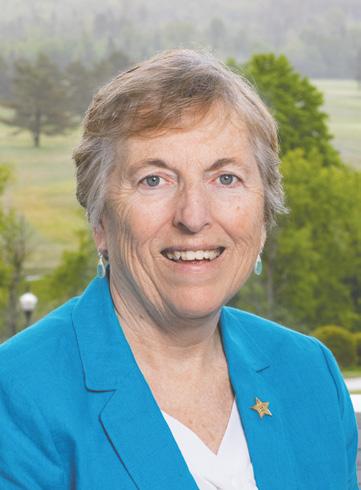
Connecticut School Buildings and Grounds Association (CSBGA)
Connecticut School Counselor Association
Connecticut Technical High Schools
Cooperative Educational Services (C.E.S.)
EASTCONN
EdAdvance
Explorations Charter School
Great Oaks Charter School
Integrated Day Charter School
ISAAC
LEARN
Live Girl
Odyssey Community School, Inc. Relay CT
The Bridge Academy
EXECUTIVE DIRECTOR
Personal Connections
Patrice McCarthy Executive Director & General Counsel, CABEThe new school year is well underway with classes, student activities and boards of education reviewing strategic plans and setting goals.
Superintendents and board members have reported that this has been the best school opening in years, with students and staff energized to continue learning and teaching. The benefits of personal connections became more apparent when we were all operating in a virtual environment. Despite ongoing shortages of staff –
teachers, paraprofessionals, bus drivers – creativity and resiliency dominate in our school districts.
The CABE/CAPSS Convention will provide an energizing experience for board members and superintendents. Returning to a full in person event, with no cap on registration, is a welcome opportunity to reconnect with colleagues. The formal professional development opportunities provided in keynote sessions and workshops will be enhanced by the networking that takes place throughout the event. We all know that coming away with one good idea makes attendance at any
will take us.”
professional growth. It’s roll out status under ARP grant funding allows us to provide incentive during this critical shortage without creating a budget cliff while we assess results for future budget consideration.
Waterbury U also speaks to the boards’ commitment to Waterbury’s Portrait of a Graduate to create lifelong learners. Waterbury U will provide Waterbury students familiar faces that exemplify lifelong learning. The board is excited to see where Waterbury U
Meeting of Interest
Liz Brown, CABE President and a member of the Waterbury Board of Education, said “I can’t think of a better use of ESSER dollars then an investment in teachers and paraprofessionals. Providing opportunity for career advancement to our dedicated staff, demonstrates appreciation for all their hard work and commitment to students.”
Waterbury, like most school districts in Connecticut and around the country, faces annual educator shortages. This unique opportunity can help paraprofessionals become certified, and serve as an incentive for teachers to remain in the district. Other strategies used in Waterbury to recruit and retain educators include working with the colleges and universities to create easy access to courses, work on degree programs and certification, alternative certifications and advertising through social media platforms.
The district also participates in the NextGen Educators partnership with SDE, which brings college students into the classroom, and EdRising, a curriculum for high school students that encourages them to consider careers in education.
conference worthwhile.
The CABE staff always has a multitude of these ideas as we leave the Convention and plan how to enhance our support for boards of education. We will continue to face challenges in public education, and the CABE Executive Committee and full Board of Directors is committed to continue to work with the CABE staff to support each board of education as we move forward for ALL children.
CABE Welcomes New Staff Member
Please join us in welcoming Wendy DeBarge to CABE! Wen dy joined the staff as Co ordinator of Finance and Administration on October 3.
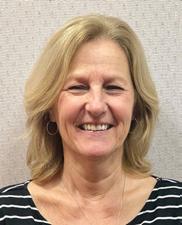 Wendy DeBarge
Wendy DeBarge
A graduate of Post Univer sity, Wendy comes to us with more than 35 years of experi ence in finance.
She says she is happy to be back in an office environment after working remotely for two and one-half years due to COVID-19.
Wendy will work close ly with staff leadership, the Finance Committee, and Board of Directors to ensure CABE’s financial resources remain strong.
Welcome, Wendy!
WATERBURY EDUCATOR (continued from
The Nutmeg Board of Education makes many mistakes. The latest imbroglio created by the board will be reported here each issue, followed by an explanation of what the board should have done. Though not intended as legal advice, these situations may help board members avoid common problems.
Last week, Mr. Superintendent sent an email to the members of the Nutmeg Board of Education, asking who would be available for an expul sion hearing. It is a busy time, and several of the Board members bowed out. However, after some cajoling from Mr. Superintendent’s administrative assistant, Board members Red Cent, Mal Content, and Bob Bombast all agreed to sit as the panel deciding the case. In advance of the hearing, Mr. Superintendent sent the Board members a copy of the hearing notice, which identified the student and stated that the reason for the expulsion was distribution of a controlled substance.
The hearing was last evening. Joe Blow, the accused student, was repre sented by local attorney Bill Alot. In his opening statement, Bill asked the Board members to have an open mind about the charges Mr. Superintendent had brought against his client. For his part, Mr. Superintendent simply asked the Board members to listen carefully to the evidence and do what is nec essary to keep Nutmeg students safe from the scourge of drugs.
Mr. Superintendent presented his case by calling Al Assistant, the long-serving assistant principal at Nut meg Memorial High School in charge of student discipline. On direct ex amination, Mr. Assistant testified that he had heard from a student that Joe Blow is a “dealer” who could “fix up” any student who is looking for “weed” or “ecstasy.” Mr. Superintendent then asked how Mr. Assistant investigated further, and he explained that he’d spo ken informally with several students with whom he had a close relationship, and they told him unequivocally that Joe was known throughout the school for providing drugs to students.
Attorney Alot then started his cross examination. He asked Mr. Assistant if he had any direct knowl edge of Joe Blow’s dealing drugs, and Mr. Assistant admitted that he did not. Attorney Bill Alot then elevated his tone, asking Mr. Assistant if he had ever even bothered to ask Joe Blow to respond to these allegations. Mr. Assistant assured Bill Alot that he had interviewed Joe as part of his investi gation, but that he found Joe’s denials unconvincing.
When cross examination ended, Mr. Superintendent rested his case, and the Board members asked Attor ney Alot if Joe would be testifying. “No need,” responded Bill Alot.
Hearing
With that, the Board asked for closing statements. Mr. Superinten dent stressed the importance of being tough on drugs, but Attorney Alot claimed that Mr. Assistant’s testimony was rank hearsay and that the Board members should reject the recommen dation for expulsion.
The Board members then retired into private session to deliberate. Bob Bombast started the discussion with the observation that the Board mem bers shouldn’t believe anything Joe says. Bob started to explain that his nephew had told him about some runins with Joe, but the other two Board members interrupted him, asking Bob if he has a conflict of interest and should recuse himself. But Bob simply said “Never mind” and redirected the discussion to the case against Joe. Bob told the other Board members that he found Mr. Assistant’s testimony quite credible, and he wondered aloud about what Joe had to hide by not testifying.
Red Cent enthusiastically agreed, but Mal Content disagreed. “Expulsion is a serious matter, and we need more than rumors to expel Joe. I can’t vote to expel.”
“Suit yourself,” Bob responded. The Board members returned to the hearing room, reconvened in open session, and voted 2 to 1 to expel Joe. Did the Board members mess up?
The Board members’ vote was ineffective because Conn. Gen. Stat. § 10-233d requires that there be three affirmative votes in order to expel a student. However, the ineffective vote was only one of many problems in this case.
When board of education mem bers conduct expulsion hearings (or student accommodation or transporta tion hearings), they perform a qua si-judicial function. As “judges,” board members are constrained by principles of due process, key elements of which are fair notice and impartiality.
Here, both the student and the Board members received notice of the hearing. Such notice to the student is required by statute, which regulates the content of such notice. It was appropriate for the Board members to receive a copy of the notice as well, so that they are informed of the identity of the student and can know wheth er any personal connections to the student would affect their ability to de cide the case impartially. While board members should not discuss the case with the superintendent outside of the hearing, notice of the charges, without more, does not create a problem.
An impartial decision-maker is an essential element of due process. Board members should not investi gate the matter independently or talk on the side about the case with the superintendent or others. Rather, all information that board members rely upon to make a decision should be
presented at the hearing. If a board member brings into the deliberations information that was not shared during the hearing, the student (or the superintendent) would be denied the opportunity to know of and poten tially challenge the information being shared.
Here, Bob started to describe oth er information he had received from his nephew about Joe Blow. The other Board members properly shut him down, but the question remained –could Bob be impartial? These matters are not black and white, and the law generally leaves the question to the individual board member – can he or she decide the matter without letting outside information affect delibera tion on the matter? However, Bob’s statements during deliberations were concerning and could give Joe a due process claim.
Hearsay is reliance on a state ment of a third party for the truth of the matter asserted. Mr. Assistant’s testimony was indeed hearsay, be cause he had no direct knowledge and offered what some students had said as proof of Joe’s guilt. The problem with hearsay is that the other party cannot effectively cross-examine the testimo ny because the person(s) with direct knowledge (whose hearsay statements are used) is not present to explain or answer questions.
The essence of due process is basic fairness, and extensive use of hearsay
can be unfair. Given these concerns, the rule for many years was that it was a due process violation to rely on hearsay to expel a student. In recent years, courts have been more tolerant of hearsay testimony in expulsion cases because of concerns for student safety. However, in the interest of a fair hearing, boards should permit hearsay testimony only when it is reliable
Finally, we note that two Board members were ready to draw an adverse inference from Joe’s not testifying. Such an inference would be improper. The burden of proof in an expulsion hearing is on the super intendent, who must make the case for expulsion. To be sure, the stan dard in an expulsion case is that the superintendent must prove the case by a preponderance of the evidence, i.e., does the evidence make it more probable than not that the charges are true. Moreover, Joe’s testimony could help him by providing evidence of his innocence. However, Joe did not have the burden of proving himself to be innocent, and the Board members should have left whether Joe testified up to him and his lawyer.
Attorney Thomas B. Mooney is a partner in the Hartford law firm of Shipman & Goodwin who works frequently with boards of education. Mooney is a regular contributor to the CABE Journal. Shipman & Goodwin is a CABE Business Affiliate.
by Thomas B. Mooney, Esq. Shipman & GoodwinIt’s Personal
Relationships fuel success. We earn your trust by taking your success as personally as you do. However you define value, Shipman delivers.
Shipman’s school law lawyers have over 50 years of experience, and represent over 100 public school districts, as well as public school member organizations and associations, on the broad range of legal issues that school districts confront. We call on lawyers experienced in school law, special education, employment law, labor relations, intellectual property, data privacy, construction and environmental issues, and business contracts to provide effective and efficient legal assistance for our clients.
It all adds up to a relationship that delivers added value for each of our school district clients.

Our Practice Group Co-Chair, Tom Mooney, has written A Practical Guide to Connecticut School Law, a comprehensive treatise on Connecticut school law, published by CABE and used by teachers, administrators and board of education members throughout the state.
Education is a core focus of our law firm. www.ctschoollaw.com
Contact: Thomas B. Mooney , Jessica L. Ritter or Julie C. Fay | 860.251.5000

Below are the highlights of activities that the CABE staff has undertaken on your behalf over the last month. We did this:
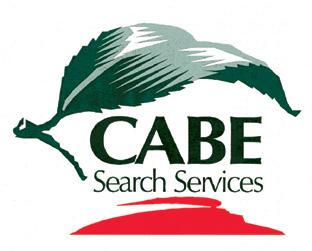
By providing opportunities for members to learn how to better govern their districts:
z Provided a Roles and Responsibilities workshops for the Westbrook and Woodstock Boards of Education.
z Facilitated a workshop on setting vision for the Hampton Board of Education.
z Provided webinars on Parliamentary Procedures and Roles and Responsibilities. Both are archived on CABE’s website.
z Responded to 56 requests for policy information from 35 districts, providing sample materials on policy topics. Further, districts continue to access CABE’s online Core Policy Reference Manual and/or online manuals posted by CABE for policy samples. The topics of greatest interest were those pertaining to Gifted and Talented Students, Narcan, Reporting of Child Abuse, Controversial Issues and Board Member Code of Conduct.
z Participated in CABE DEI Committee meeting.
By helping school boards to increase student achievement:
z Presented the first module of Lighthouse training for the Montville Board of Education.
z Sent two issues of “Policy Highlights” via listserv covering topics that affect student achievement. Topics pertained to New Social Emotional Learning Coalition; (SEL in District Policies); Strengthening School Community to Improve Student Achievement.
By ensuring members receive the most up-to-date communications:
z Prepared materials, as part of the Custom Policy Service, for Region 15 and Sharon Center School
z Assisting Colchester, New Milford, Somers, and Woodbridge in their superintendent searches.
By promoting public education:
z Provided workshop on Board/ Superintendent relationships to an Administrative Certification graduate class for Sacred Heart University
By providing services to meet member needs:

z Facilitated goal setting for Middletown Board of Education.
z Facilitated board retreats for the East Hartford, Region #4, Chester,
Deep River and Essex Boards of Education.
z Revised policies, as part of the Custom Update Policy Service, for East Windsor, Gilbert School, New Fairfield, Sterling, Westbrook, and West Haven
z Responded to a variety of legal inquiries from members.
By attending Professional Development to strengthen staff knowledge and skills:
z Attended virtual Council of School Attorneys fall meeting.
z Attended Shipman & Goodwin legal update.
z Attended a meeting of the National School Board Association Trainers Consortium
z Attended non-profit Best Practices webinar.
By helping districts operate efficiently and conserve resources:
z Discussed barriers to regional cooperation with SDE staff.
z Facilitated Professional Development Mandates Working Group meeting.
z Posted policies online, as part of the C.O.P.S. Program for Bethel, Bolton, Bristol, Brooklyn, Canterbury, Danbury, Granby, ISAAC, Norfolk, Preston, Region 4, Somers, and Westbrook.
By representing Connecticut school boards on the state or national level:
z Participated in calls with NSBA leadership.
z Participated in calls with state association counsel.
z Attended the Governor’s press conference on indoor air quality funding.
z Facilitated Board Chair Check-In and Update.
z Participated in calls with Connecticut education partners.
z Provided legislative update to CREC Council
z Attended Discovering Amistad board of directors meeting.
z Participated in DPH/SDE calls.
z Participated in Social Emotional Learning Council meetings.
z Participated in Connecticut Bar Association Civics Education Committee meeting.
z Attended CAPSS Board of Directors meeting.
z Attended a meeting of the Connecticut Commission for Educational Technology
z Participated in meeting of State Association Convention Managers.
CABE Executive Committee members and staff recently had the opportunity to have a tour of Connecticut’s official flagship, the Amistad when it was docked in Middletown. This was an extremely educational experience, with our tour led by Chris Menapace, Director of Education for Discovering Amistad Built in Mystic Seaport in the year 2000, The Amistad is a 128-foot replica of the schooner that was the scene of the uprising of slaves in 1839.
In 1839, Mende captives from Sierra Leone took control of the Amistad. Unable to navigate back to Africa, the ship was captured off the coast of Long Island and towed into the port of New London Harbor in Connecticut.
The Mende were faced with slavery or execution, and their cause was taken up by many residents throughout Connecticut. U.S. Circuit
CABE Visits The Amistad
and District courts ruled in favor of the Mende. The captives were represented in their cause by attorney Roger Sherman Baldwin, who would later be Governor of Connecticut.
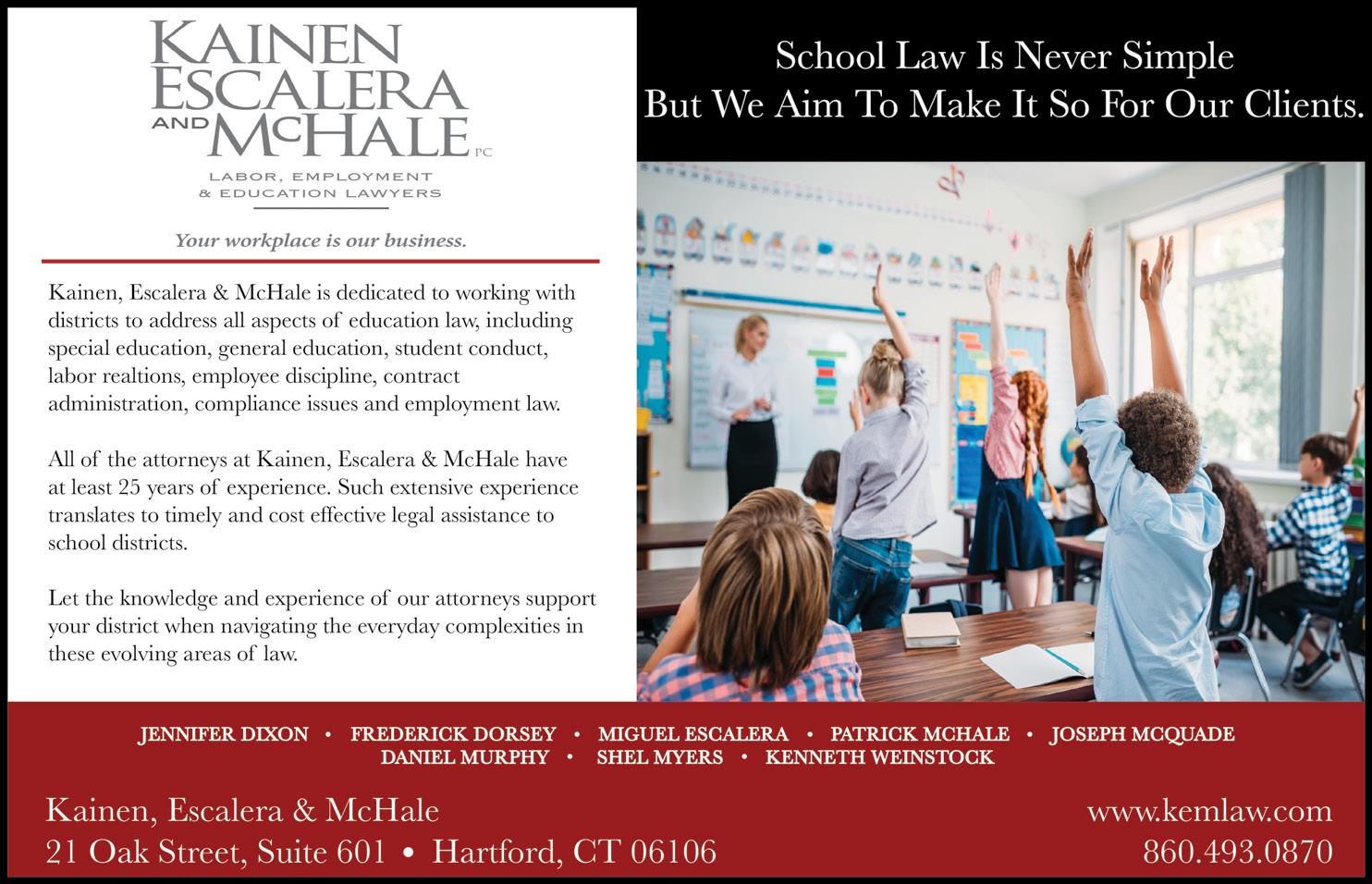
This case was then appealed to the U.S. Supreme Court by President Martin Van Buren and in 1841 the court agreed with the lower court decisions and the Mende captives were ordered freed. Former President John Quincy Adams was part of the captives’ defense team at the Supreme Court. The story of the Amistad addresses the same concepts of freedom, power, justice and equality we face today.
The educational programs connected on the Amistad are run by Discovering Amistad, a nonprofit educational organization that provides year-round programming for students and adults. CABE Senior Staff Associate for Field Service, Nick Caruso, serves on the Discovering Amistad Board of Directors and said, “The Amistad story was a significant one in United States history, and was rarely taught in Connecticut’s schools,
or anywhere else, until recently. To discover this noteworthy part of American history and to be able to share this story with students and adults across the state and country; and to be able to help bridge the story to today’s world is a significant part of Discovering Amistad’s mission. It was a wonderful experience to share the story, and the ship, with my colleagues on the CABE staff and members of our Board of Directors.”
Discovering Amistad was established in 2015 and has welcomed thousands of visitors aboard the tall ship, in addition to in-school and online learning opportunities, as well as partnerships to address social justice and promote diversity.
You can find more information on Discovering Amistad at their website, www.discoveringamistad.org.

The National School Boards Association recently released the
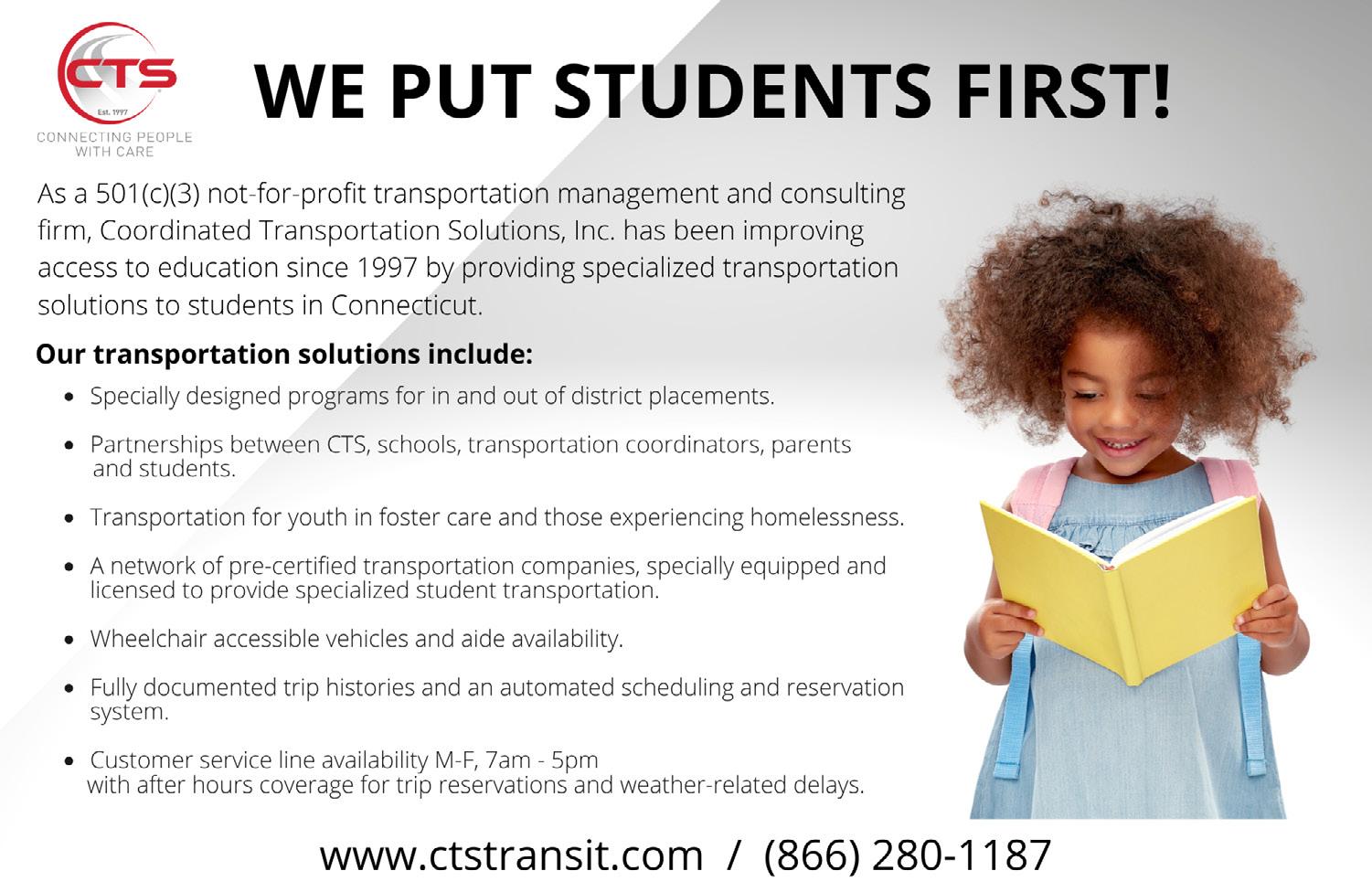
ROBERT RADER
(continued from page 1)
Bob is a Past Chairman of the National School Boards Association’s Liaison Committee, which represents all state association executive directors in working with NSBA. He is a member of the American Society
SATURDAY SPEAKER
(continued from page 1)
University of Hartford
An active orchestral trumpeter and freelance musician, Dr. Hlavac has performed with the New Haven Symphony, the Bridgeport Sympho ny, the Wallingford Symphony, the Hartford Pops Band, the Hartford Brass Ensemble, the New Haven Brass Ensemble, and alongside the Yale Glee Club, the Yale Camerata, the Connecticut Chamber Choir, the Cape Cod Chamber Music Society, and many others.
School Safety Resource
publication “Fostering Safer Schools: A Legal Guide for School Board Members on School Safety.” The guide provides a legal perspective on student mental health, crisis management,
of Association Executives and past president of its Connecticut branch, CSAE. In 2008 he received the CSAE Executive of the Year Award.
Bob also is a member of the Board of Directors of the Connecticut Regional branch of the AntiDefamation League.
Bob Rader attended public school on
A frequent educational leadership clinician and presenter, Dr. Hlavac has delivered presentations throughout the country. He is also an advisory board member for The Department Chair, the premier academic department chair journal. Dr. Hlavac’s research interests focus on the use of organizational and departmental missions to prioritize decision-making and the utility of mission-based management in the administration of the contemporary university.
Join us on Saturday morning for what promises to be a great session!
working with law enforcement including SROs, and liability. The guide is designed to give school board members as local policy members an overview of best practices and
Long Island. He has a B.S. in Industrial and Labor Relations from Cornell University and a J.D. from Albany Law School of Union University
Before coming to Connecticut, Bob worked at New York State School Boards Association (NYSSBA) in a variety of positions, including Legislative Representative, Director of Risk Management Services and Director of and Counsel for Policy and Employee Relations Services.
CABE’s Board of Directors has awarded the Friend of Public Education Award sixteen times since it was established in 1997. The award is given to those men and women who have worked to support public education in Connecticut and are not eligible for other CABE awards. Past recipients of the award
available resources.
The guide is available for free at www.nsba.org/-/media/NSBA/File/ legal-fostering-safe-schools-guide.pdf
are Theodore Sergi, Pat Luke, John Allison, Tom Mooney, Lori Aronson, Bob Frahm, James Comer, Betty Sternberg, George Coleman, David Nee, Virginia Secombe, Anne Bryant, Karissa Niehoff, Joe Cirasuolo, Dianna Wentzell and the Departments of Education and Public Health
CABE President Liz Brown stated “Bob joins outstanding former recipients of CABE’s prestigious Friend of Education award who were dedicated to excellence in public school education and who left a lasting legacy of accomplishments.”
Patrice McCarthy observed “Bob maintained his commitment to supporting boards of education in their efforts to meet the needs of all students throughout his career.”
“Leadership and learning are indispensable to each other.”
– John F. Kennedy
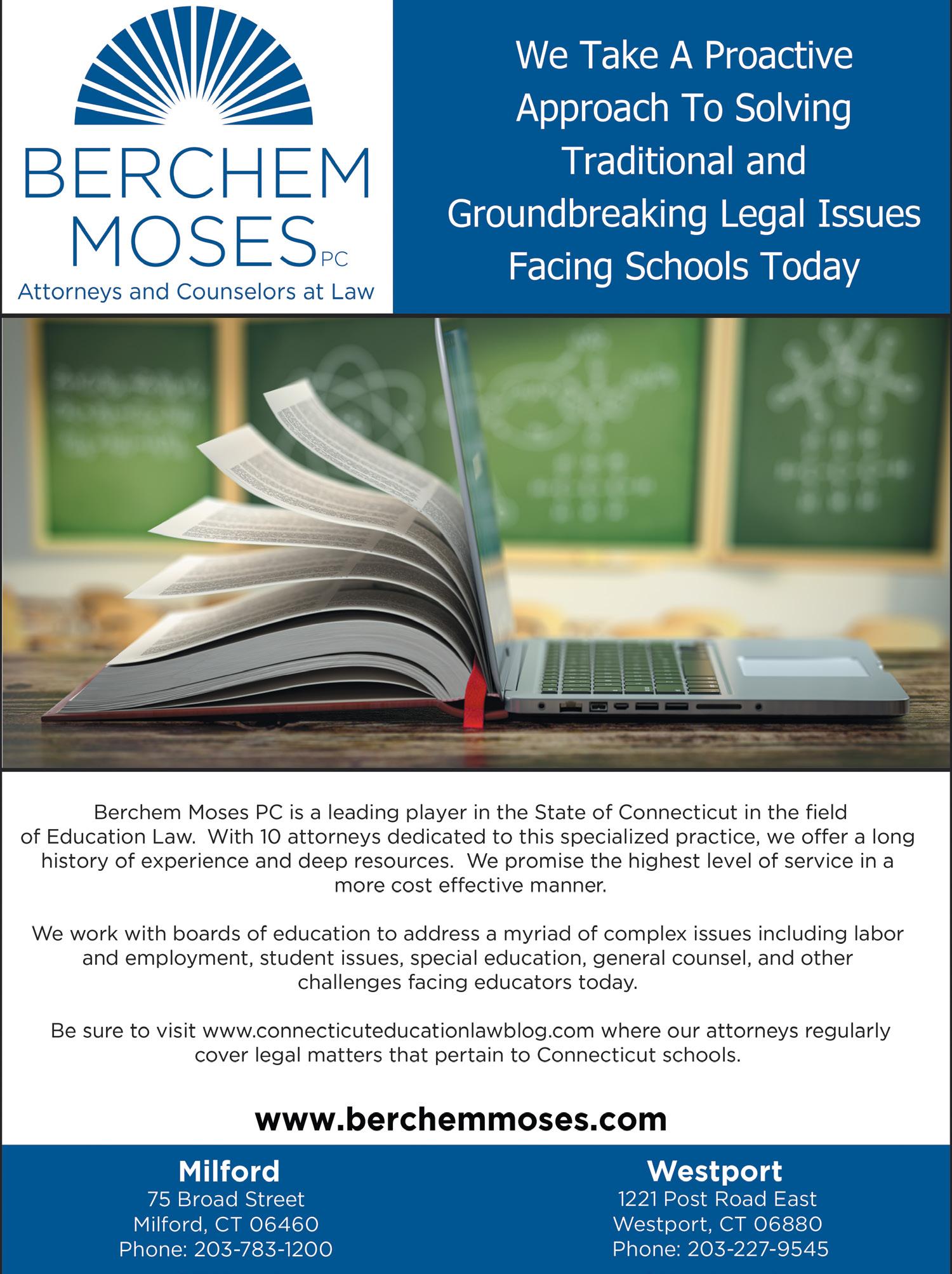

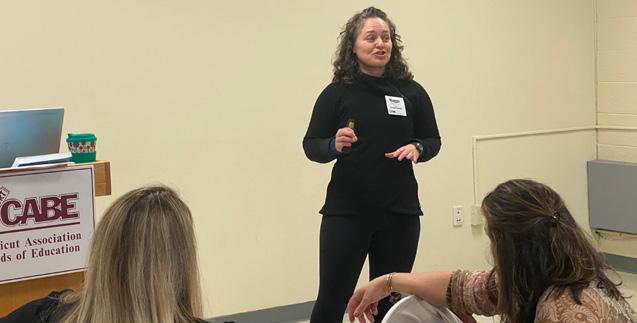

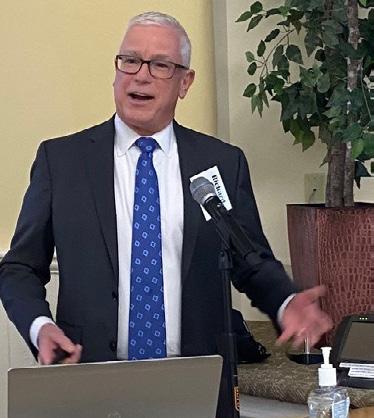
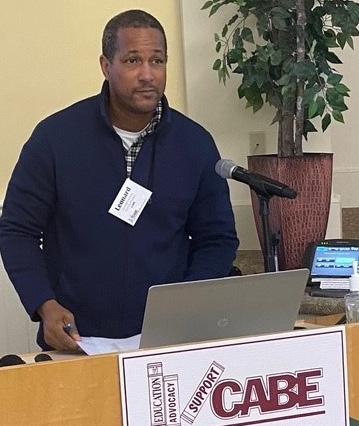
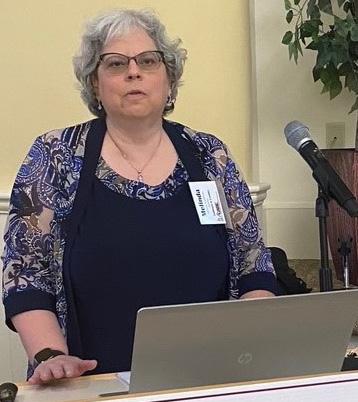
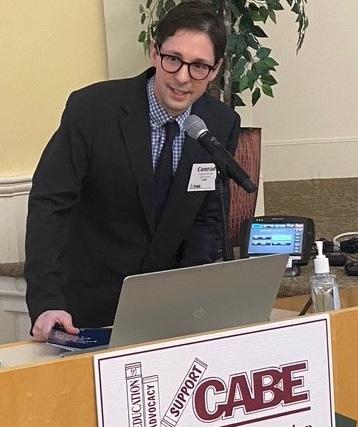
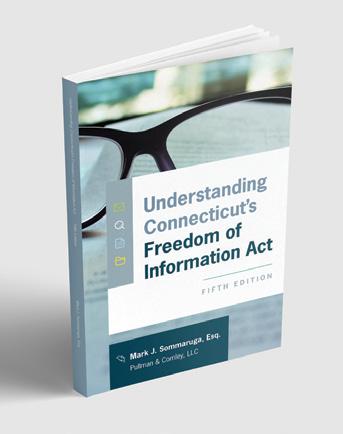



All boards of education strive to govern their school system effective ly. However, challenges still arise in school districts.
The most effective boards of ed ucation minimize problems through the proper utilization of policy which provides the required leadership in partnership with the superintendent.
Board Leadership
Board members must remember that they are elected to lead, not ad minister. Policy is the board’s leader ship tool. The board speaks through its policies which provide guidance to the superintendent and his/her staff.
Therefore, the bylaw section of the board’s policy manual should contain a comprehensive bylaw that sets out the policy development process for the board. This process should contain the how, who and when of policy develop ment, review, evaluation and revision.
When developing and adopting new or revised policies, the board needs to give consideration to the vision and mission of the school sys tem. The policies should assist in the attainment of the vision and mission statements.
Boards should continuously ask, “How can we use our policy-mak ing authority to cause our schools to become better?” Policy used creatively can result in responsible governance. Policy helps to move the system in the desired direction.

Monitoring
After policy adoption and dissem ination, it is important to monitor pol icy to determine that it is appropriately implemented and followed. Keep in mind that policy should not be consid ered merely as a set of suggestions; it is the “law” of the district.
Through policy statements, the board either mandates that something happens or permits something to hap pen that would otherwise not be per missible. Insist that policy be followed and establish a means to monitor the implementation of policy. In evaluating the effectiveness of board policies, in addition to determining if the intended results are being achieved, also consid er if there are some unintended or un desirable consequences. Policies should be revised as deemed necessary.
Board policy provides the stan dards by which the district operates. It is through policy that a board states what it wants to see happen or achieved and why. All too often, however, policy
manuals and the important informa tion they contain are not appropriately disseminated. Just as it is important to involve people in decisions that affect them, it is equally important for boards to tell people about policies that may significantly affect them.
Students, their parents/guardians, in addition to the staff and the com munity, need the information con tained in the board’s policies. Priority initially must be given to informing students and their parents/guardians
are not static.
Policy revision and updates must be viewed and embraced as an ongo ing task for all boards of education. This can be accomplished in a number of ways, such as an in-depth, thorough analysis of the policy manual, annual reviews using material provided by CABE’s Policy Update Service quar terly publication, and discussion of identified policy areas on a regular ba sis at board meetings. Many boards of education establish a policy committee
sistently. Administrative regulations or procedures provide guidance for administrators in uniform application of policy and procedures. Administra tive regulations, also known as proce dures, while not adopted by the board, provide the board with assurance that the superintendent understands and is striving to carry out the intent of the policy statement.
about information contained in board policies and their accompanying ad ministrative regulations. Many prob lems can be avoided by getting infor mation to them before problems arise because of what they didn’t know.
The easiest and most effective way to make sure students and citizens have access to policy is to post policies online. CABE’s Connecticut Online Policy Service (C.O.P.S.) continues to assist boards in the posting of poli cy manuals online with easy to use searchability.
Another major vehicle used to disseminate such information remains the student/parent handbook. Policies critical to student success should be included in a handbook provided to students and their parents/guardians each year. Increasingly, these docu ments are also being placed online. The policy manual should also be available in every public and school library and at the board offices.
Handbooks must be reviewed annually and updated as necessary to assure consistency with changes in board policies, administrative regu lations, new or revised state/federal regulations, judicial decisions and changes in local procedures and prac tices. It should be determined annually which policies should be contained within the handbooks of all schools in the district and posted on school and district websites.
The Work Is Never Done
The job of policy development, like curriculum development, can nev er be considered to be finished. Policy is an ongoing and most important re sponsibility for all boards of education. It is essential that school board policies be kept current. School board policies
to work with an administrator to de velop and revise policies for action by the full board.
It is also important for the su perintendent to develop written administrative procedures/regulations to assure the board that policies are being implemented fairly and con
Remember, beyond the fact that the policy manual is a legal compliance document; it is also the governing doc ument of the school district. This is the place that staff, students, parents and community members should be able to look to hear the voice of the board. The policy manual is the document that allows the board to make clear its lead ership and direction for the district.
CABE’s Policy Services is prepared to assist you fulfill your important policy role. Give full attention to the challenge of making schools contin uously better through a vision for an excellent school system and through policy development.
